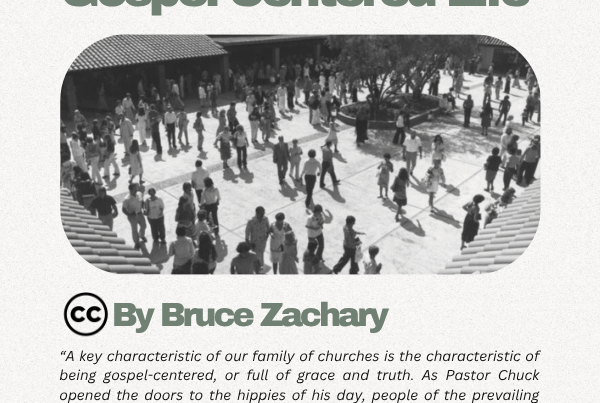
“But the Lord was with Joseph and showed him mercy, and He gave him favor in the sight of the keeper of the prison” (Genesis 39:21).
When Joseph’s brothers sold him as a slave, they had no idea that they were the first group of God’s people to intentionally send a fellow member of His family across a massive geographical boundary and into a radically cross-cultural living situation.
But viewed through a sovereignty of God’s lens and using the bigger story of the whole Bible to frame the specific events that took place in his life, it’s easy to see that his mean-spirited and poor-representatives-of-the-true-and-living-God-brothers were simply the vehicle that God used to send Joseph on a mission for His glory and the good of his own people AND the Egyptians.
JOSEPH WAS A CROSS-CULTURAL MISSIONARY
Put as simply as possible, God used these self-centered and self-serving people to send a missionary.
Although Joseph’s life can and should be viewed as a model for cross-cultural effectiveness, in this post I’d like to focus on one specific moment in the roller coaster life he lived in Egypt.
The backstory leading up to this verse is this–Joseph had been falsely accused of attempted rape by the wife of his boss and sentenced to prison.
It’s important to note that God permitted this false accusation to be made, and He also permitted Joseph to experience the consequences of that misinformation being taken seriously.
HIS PRESENCE MAKES ALL THE DIFFERENCE
But as is always the case with those who are truly His people, especially when they are enveloped by life-altering difficulties, God was with Joseph even in the midst of the prison.
We have no record of God specifically promising to be present with Joseph, but as the first part of this verse makes clear, He was present with Joseph with him during his undeserved confinement.
Clearly, Joseph knew His God and although the Bible doesn’t say so specifically, that is evidence of a very real and intimate prayer life. He was an incredible man of faith whose relationship with God was so vibrant and so obvious that unbelievers he came in contact with recognized that it was His God’s hand on his life that made him so different from everyone else.
An extraordinary prayer life is the only path to the kind and depth of relationship with God that Joseph had.
Having said all that, I don’t believe I’d be wrong to assume that when he was accused and then imprisoned, Joseph probably amped up his already healthy prayer life and pressed deeper in to His relationship with God.
Now when I think about all that had happened to Joseph previously and then try to envision those things happening to me, I guarantee you that I’d be begging God for mercy.
IF I’M WRONGLY IMPRISONED, BEING DELIVERED IS HOW I’D DEFINE MERCY
And I’d be defining and describing the mercy I’d like God to bestow on me using only seven words: “Lord, please get me out of here!”
Whether that’s what he prayed or not, this verse tells us that God did show Joseph mercy.
But God describes and defines what mercy looks like for Joseph at that time–He gave Joseph favor in the eyes of the keeper of the prison.
If I was Joseph and I had prayed for God to be merciful to me in the midst of these events that I didn’t contribute to, it would be very difficult for me to believe or understand that God’s definition of mercy was favor with the prison warden for another two years, rather than releasing me as soon as possible.
Yet that’s exactly what the Bible says.
WILL WE PERMIT GOD TO DETERMINE WHAT MERCY LOOKS LIKE?
You see, whether we like it and agree with it or not, it’s God Himself that defines and determines what mercy is, and how He will bestow it.
And as this episode and the rest of Joseph’s life makes clear, the unrecognized mercy He grants to His servants will always be what’s best for us, for others and for His glory.
The fundamental lesson, as I see it, is that there will be times when the way we want Him to answer our cry for mercy will be in conflict with the way He actually does.
When that happens, we need to ask Him to give us the lenses we need to detect His mercy in ways that are very different from what we were expecting.









